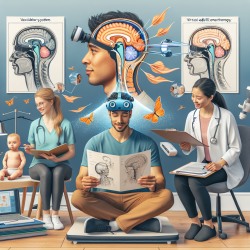The mental health of teenagers is a growing concern worldwide. Recent research, particularly the study titled "Social Connections and Self-Perceived Depression: An Enhanced Model for Studying Teenagers’ Mental Wellbeing," highlights the critical role that social connections play in influencing teen mental health. This blog post explores how practitioners can apply these findings to improve their skills and support the mental wellbeing of teenagers.
The Role of Social Connections
Social connections, including relationships with family and friends, have been identified as significant predictors of mental health among teenagers. The study conducted in Malaysia found that stronger social ties correlate with reduced levels of self-perceived depression among teens. This suggests that fostering robust social networks can be a powerful tool in promoting mental wellness.
Key Findings from the Research
- Inverse Relationship: There is a negative relationship between social connections and self-perceived depression. Teens with stronger social ties report lower levels of depression.
- Mediating Role: Self-perceived depression mediates the relationship between social connections and improved mental wellbeing. This means that enhancing social connections can indirectly boost mental health by reducing depression.
- Positive Impact: Improved social connections are directly associated with better mental wellbeing outcomes.
Practical Strategies for Practitioners
Practitioners working with teenagers can leverage these insights to enhance their therapeutic approaches. Here are some strategies to consider:
- Encourage Group Activities: Facilitate group activities such as sports, arts, or community service projects that promote interaction among peers.
- Family Engagement: Involve family members in therapy sessions to strengthen familial bonds and provide a supportive environment for teens.
- Create Safe Spaces: Develop environments where teens feel safe to express themselves and build trust with peers and adults alike.
- Utilize Technology Wisely: Encourage positive use of technology to maintain social connections while being mindful of its potential negative impacts on mental health.
The Importance of Further Research
This study underscores the need for ongoing research into the factors affecting teen mental health. Practitioners are encouraged to stay informed about new findings and consider participating in or supporting research initiatives that explore innovative approaches to improving mental wellbeing.
Conclusion
The findings from this study provide valuable insights into how practitioners can support teen mental health through enhanced social connections. By implementing these strategies, practitioners can help reduce self-perceived depression and foster a healthier, more supportive environment for teenagers.










